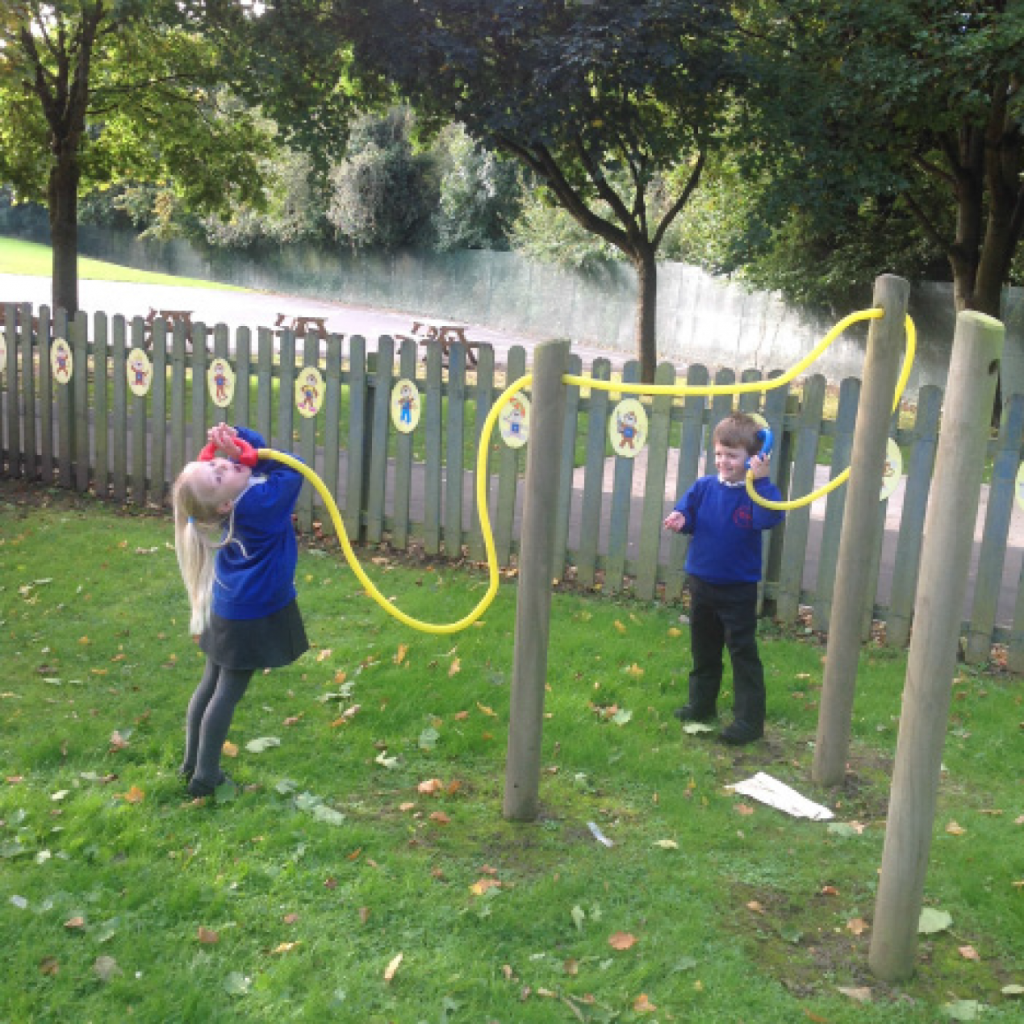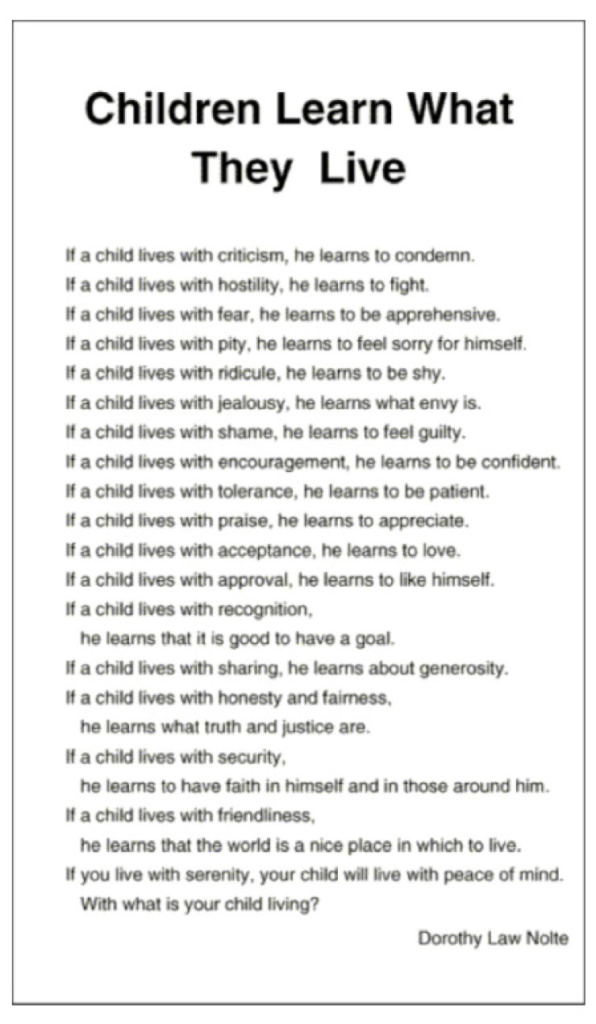
Moon’s Moat First School is a larger than average First School in the West Midlands. The children are part of a three-tier system where they transfer to Middle School at the end of Year Four. The school is situated in an area of high levels of deprivation. The majority of pupils in the school are White British. Twenty-seven per cent of pupils are classed as Pupil Premium children. The school has been part of the Achievement for All family for four years. It gained Quality Mark status in 2015 and Quality Lead status in 2017. The school was judged to be good at its last inspection in March 2017.
I became Deputy Headteacher in 2006, although I had undertaken the role as an acting deputy for the school year prior to this. I work closely with the Headteacher, who was appointed at the same time as me.
The ethos of the school is ‘Children learn what they live’. Our staff code of conduct is based on the poem with this title written by Dorothy Law Nolte.
When all staff complete their induction, this poem is at the heart of all of our discussions. This poem also underpins all of the work we do with social and emotional development with children, staff and parents at the school.
The school started its journey with Achievement for All thinking that its provision for disadvantaged pupils was good. Although a lot of good work was being done, it soon became apparent that the open-door approach that we felt we had with parents was not working as well as we had thought. We looked at how many parents were engaging with parent consultation meetings, how many were accessing workshops, what information we were giving them and how often we were enabling them to see their child’s progress in their work. We began asking ourselves questions such as, we think our parents feel valued, but how do we know?

Structured Conversations
Taking part in Structured Conversation training really opened our eyes to how we were delivering information to the parents. We started asking:
- Were we really listening to them?
- How were we delivering sensitive information to them?
- Were we involving them as much as we should in decisions about their children?